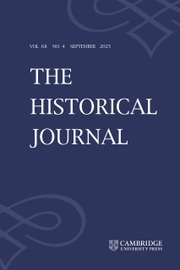(image source: Cambridge Core)
Abstract:
The article explores the key components of the political project of West Germany and the role of the Rechtsstaat within it. It shows how the German Federal Republic developed a specific reading of the rule of law as an order founded on basic rights as supra-legal values and judicial authority, which had to be defended even against democratic government. This did not signify a departure from the constitutional theory of the Weimar period, as constitutional lawyers such as Gustav Radbruch and Carlo Schmid claimed at the time. Instead, the decisive innovations in constitutional thought stemmed from the Weimar era. Judicial review and basic rights had been instruments in a political and legal struggle over the social question and the boundaries of democratic decision-making in the 1920s. They had been invoked by conservative lawyers such as Carl Schmitt and been the subject of a substantial critique mounted by social democrat interpreters of the Weimar Constitution such as Hermann Heller and Franz Neumann. As such the Rechtsstaat, which is so strongly associated with the renewal of German democracy, carries with it a tradition of legal thought which systematically and successfully expanded judicial power to the detriment of the legislature and democratic action.Read more on Cambridge Core.


No comments:
Post a Comment
Note: Only a member of this blog may post a comment.